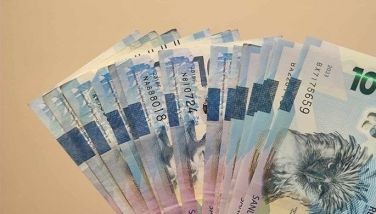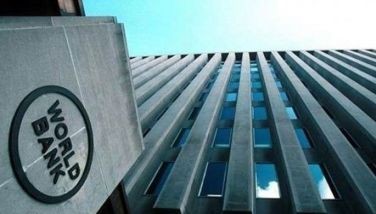Blended financing eyed for China rail project

MANILA, Philippines — The Department of Finance (DOF) is exploring the possibility of a blended currency mechanism to fast-track the approval from the Chinese government of the P142-billion railway project in Bicol.
In an interview, DOF Undersecretary for International Finance Group Mark Dennis Joven said the government is studying ways to make China approve the loan proposal for the Philippine National Railways South Long Haul, also called the PNR Bicol project.
The Marcos government earlier refiled its loan application with the Export-Import Bank of China (CEXIM) with high hopes that railway financing will resume soon following the state visit of President Marcos last January.
“Right now, because of the delay, we are exploring ways to make them accept it, including considering other currencies,” Joven told The STAR.
“We need to sit down with them and discuss if there is a way for us to blend currencies in order for them to approve it faster. We were told that if we do it that way, maybe it will be easier for them (to approve),” he said.
The PNR Bicol project costs about $2.4 billion and Joven emphasized that denominating it entirely to the US dollar might be somewhat difficult for China, which is probably causing the delay in approval.
A blended currency mechanism with China was previously done with two bridge projects aimed at easing traffic in Metro Manila – the Binondo-Intramuros and Estrella-Pantaleon Bridges – with a 397 million renminbi loan from China.
“We used that blending mechanism to get a better rate and something like that can be done (again),” Joven said.
Amid high interest rates in the global market, Joven explained borrowing via mixed currency financing would be more favorable for the country.
“The limitation, of course, is they have funding cost and if that’s US dollars, they have to charge us with what they get from the international market, which is above the benchmark rate,” Joven said.
“If it’s renminbi, they are a government entity, so technically whatever rate is approved by the Chinese government will be the rate given to us,” he said.
The finance official said during the last deal for the Manila bridges project, half of the funding was in US dollar and the other half was in renminbi.
Joven said the same could be pursued for the PNR Bicol project, as he maintained that the government would pursue an arrangement that minimizes foreign exchange risk and reduces financial cost at the same time.
Joven has yet to say when the loan will finally be approved, but hopes to get it as soon as possible.
PNR Bicol will extend for 639 kilometers, with 35 stations in total. The project will connect regions around Luzon with the objective of improving trade and travel across the island.
It was last year when the Philippines withdrew its financing request from China to finance PNR Bicol, including two other rail lines, amid an interest rate of three percent, significantly higher than Japan’s 0.1 percent.
Despite this, Marcos asked his economic team to return to the negotiating table with China.
- Latest
- Trending























